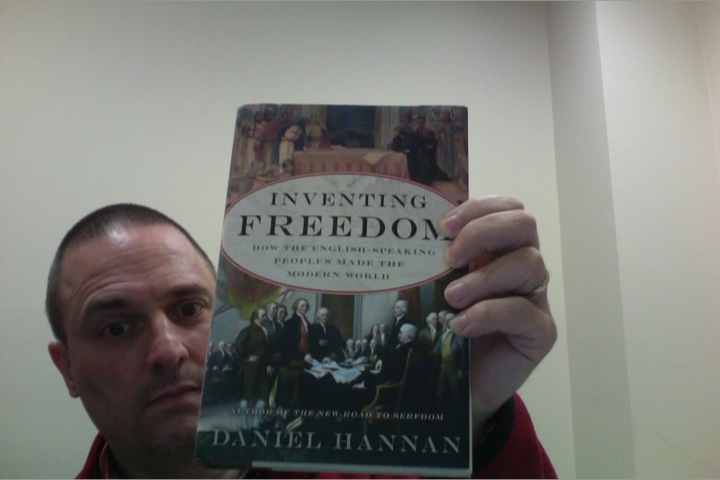My Grandfather’s Son: A Memoir by Clarence Thomas
—-
A few days ago Ann Althouse linked this wonderful interview with Clarence Thomas. I encourage you to watch it if you have a few spare minutes:
While watching it, I was reminded that I had his book sitting around somewhere. I got it years ago.
Remembering that I had made myself a vow that I was not going to buy anymore books until I had gotten through my current stack (with the notable exception of the Scott Walker book) I decided to pick up “My Grandfather’s Son” and get to it.
I am really glad I did.
Clarence Thomas came from the most poverty stricken circumstances you can imagine, and fought a lot of demons along his path to Supreme Court Associate Justice.
As a boy he grew up in rural Georgia but it seemed that he enjoyed his childhood. Until he had to move to Savannah. Here he was faced with grinding poverty and the hunger and cold that comes with being poor in the city. It was interesting for me to hear how Thomas was happier and better fed when he was living in rural Georgia. There, at least, he could fend for himself on the land and keep the hunger pangs away, while in Savannah he was basically stuck.
His father was never really in the picture, so he was being raised by his mother. One day she told Thomas and his brother to pack their stuff (such as it was) and head down the street to his grandfather’s house. He would be living there.
While this was heartbreaking for Thomas, the new place was a palace compared to what they were living in. The brothers were taken care of and were introduced to the Catholic church. The grandfather ran his house with an iron fist, but in a good way. The boys now had schooling, structure, and someone to answer to if they were fooling around. I would like to add here that it is my firm belief that many of the woes of black society in the inner cities, and many of the woes of society in general, can be squarely blamed on broken families, and children not having structure in their lives in their formative years. But this is certainly grist for another post.
Thomas looked back upon these times in his formative years fondly. Sure, he would have wanted to played in the streets, but Thomas’ grandfather was determined to make Thomas and his brother see the value of studying and hard work.
Eventually, Thomas graduated high school and found his way to Holy Cross, then to Yale. All along the way he experienced racism, both overt and covert. I found it interesting that he respected the whites in and around Savannah more for their openness about how they thought blacks inferior versus the covert racism deployed by urban liberals.
Thomas held a succession of jobs, working for Monsanto, the EEOC, the DC Court of Appeals, and eventually the Supreme Court. He describes in detail the bruising confirmation hearings and how awful the politics were.
More interesting to me was how he described his problems with his personal life, with alcohol (he no longer drinks) and the problems he eventually has with his family relationships. I will leave the details out because I want you to read the book, but it was refreshing to hear someone of a stature like Thomas to describe how he had to fight a lot of demons along his path.
The book is very easy to read and I couldn’t put it down. Thomas is a great American and has a great American story to share. I recommend that you read it someday.
Cross posted at LITGM.



